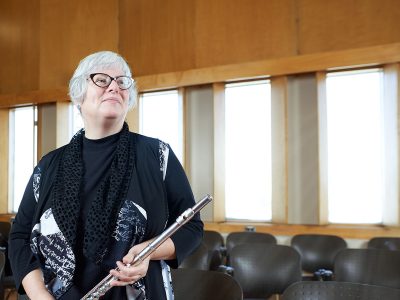By Tyrone Burke
Photos by Chris Roussakis
I focus on enhancement,
Yet I complete the same cycle.
I want to improve,
But the damage has been done.
So, for me, personally,
Optimism is key.
Leif Harris’s spoken word poem “I am Sam” echoes poignantly through the Carleton Dominion-Chalmers Centre.
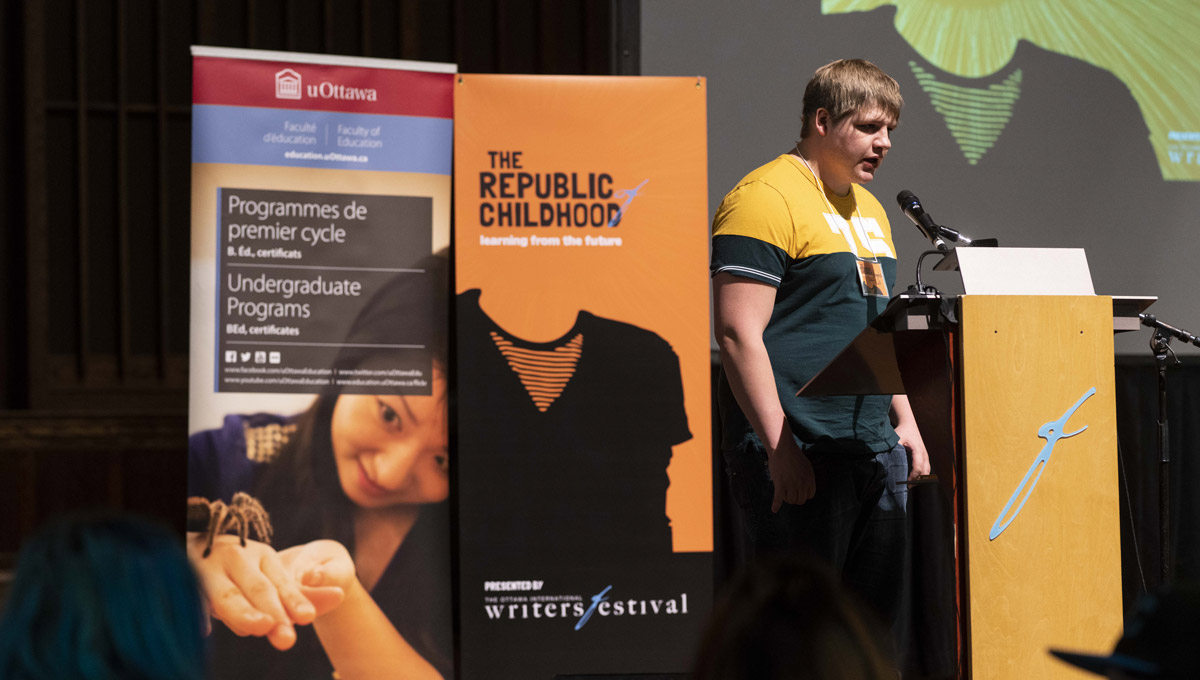
Leif Harris
He is one of eight people who participated in a six-week writing workshop for youth with lived experience of homelessness, and he’s sharing his work at the 2019 Republic of Childhood Youth Forum. It’s the third annual edition of the event staged by the Ottawa International Writers Fest, and this year’s forum celebrated the 30th anniversary of the United Nations Convention on the Rights of the Child.
It was funded with a $50,000 Connection Grant from the Social Sciences and Humanities Research Council.
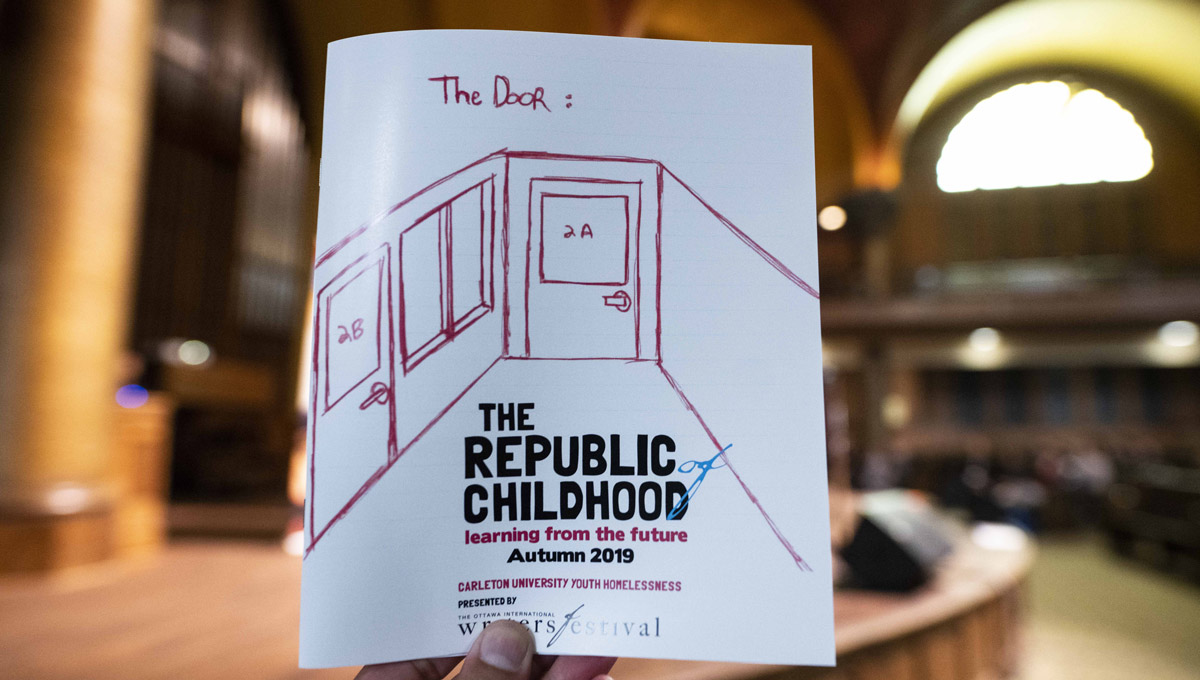
Helping Participants Express Themselves
The youth writing workshops were held weekly at the downtown centre, co-sponsored by the Writers Fest and Carleton’s Centre for Urban Youth Research. It aimed to help participants express themselves and better illuminate complex factors that contribute to youth homelessness by amplifying the voices of people who have experienced it.
For his part though, Harris says he has always been an expressive person.
“I didn’t want to focus too much on the negative in my writing,” he says.
“I tried to focus on overcoming it. Focusing on the positives gives you hope.”
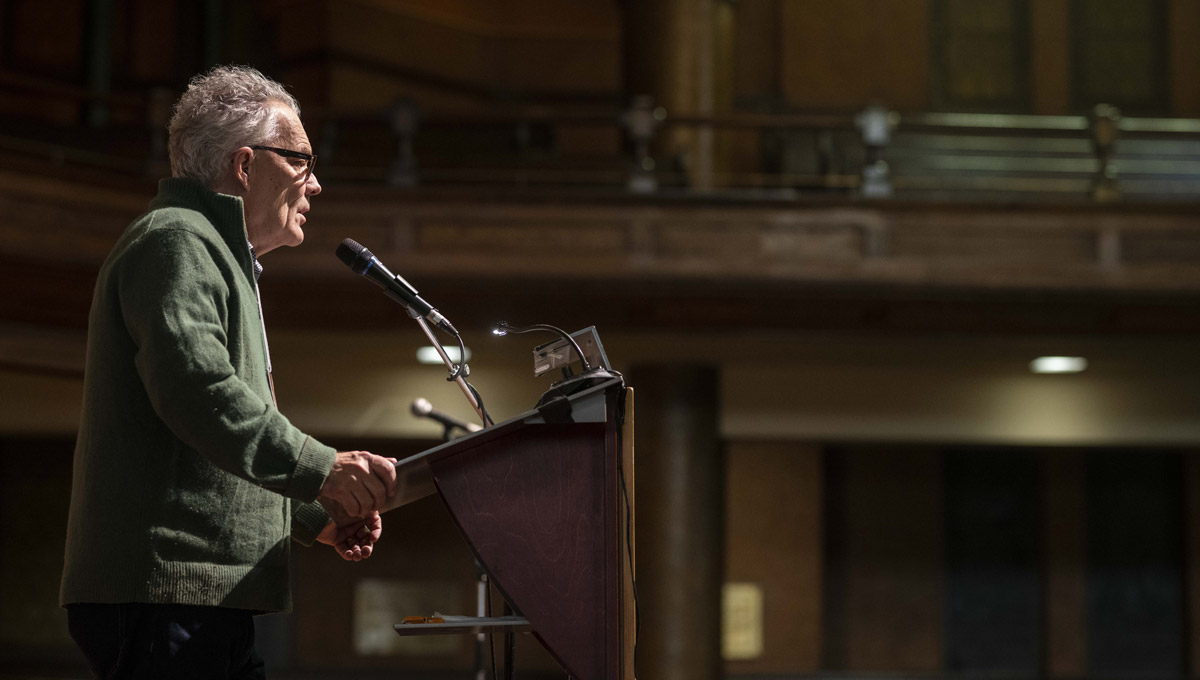
Neil Wilson
According to Neil Wilson, that sentiment aligns with one of the program’s principal aims: empowerment. The co-founder of the Republic of Childhood and development director of the Ottawa International Writers Fest, Wilson delivered the workshops with Charlotte Smith, a Carleton master’s student and peer researcher.
“Homeless youth are invisible,” Wilson says.
“You can see that in the streets of any city, including Ottawa. Very often people will walk by and not even look at someone who is panhandling. Or worse, they’ll be harassed by cops or by people who think they are somehow choosing to be homeless. All of the youth who participated in the workshop have been through some really tough times. What we’re trying to do is let them know that their voices are important – and that they are important. We want each individual to feel that they can speak their mind and it will be heard.”
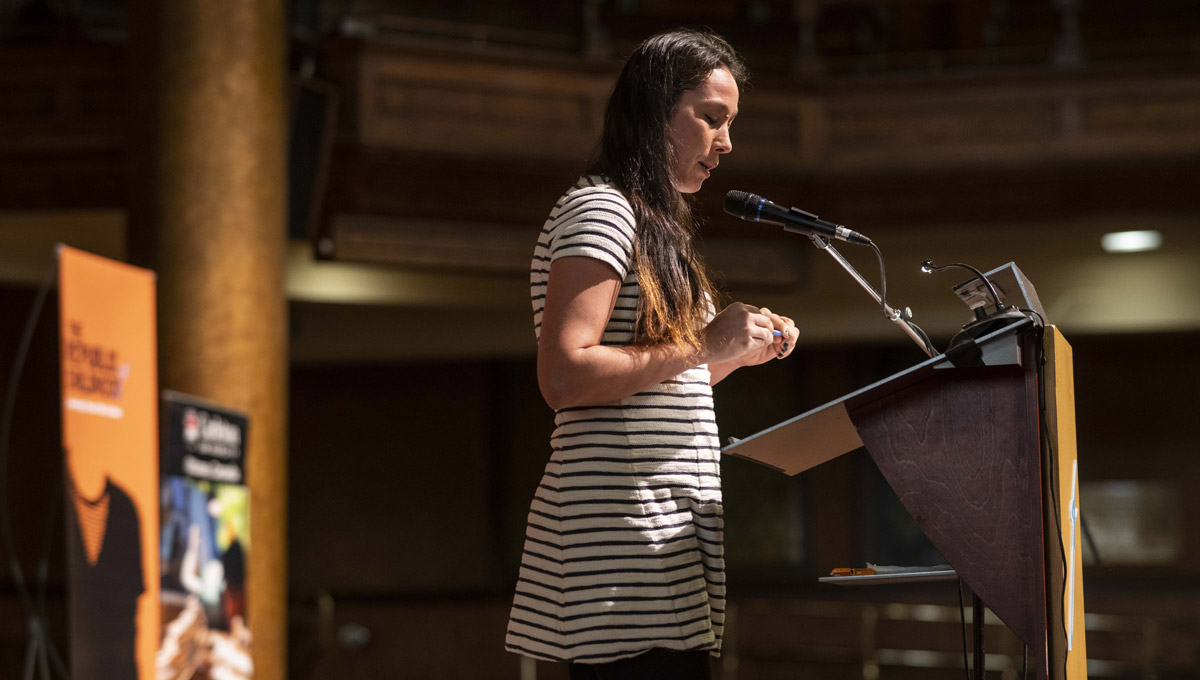
Writing Workshops for Homeless Youth
Wilson has delivered writing workshops for homeless youth in the past, but for this workshop, he connected with Carleton’s Jacqueline Kennelly, associate professor in the Department of Sociology and Anthropology, and director of the Centre for Urban Youth Research.
Kennelly’s research focuses on youth homelessness and how it happens.
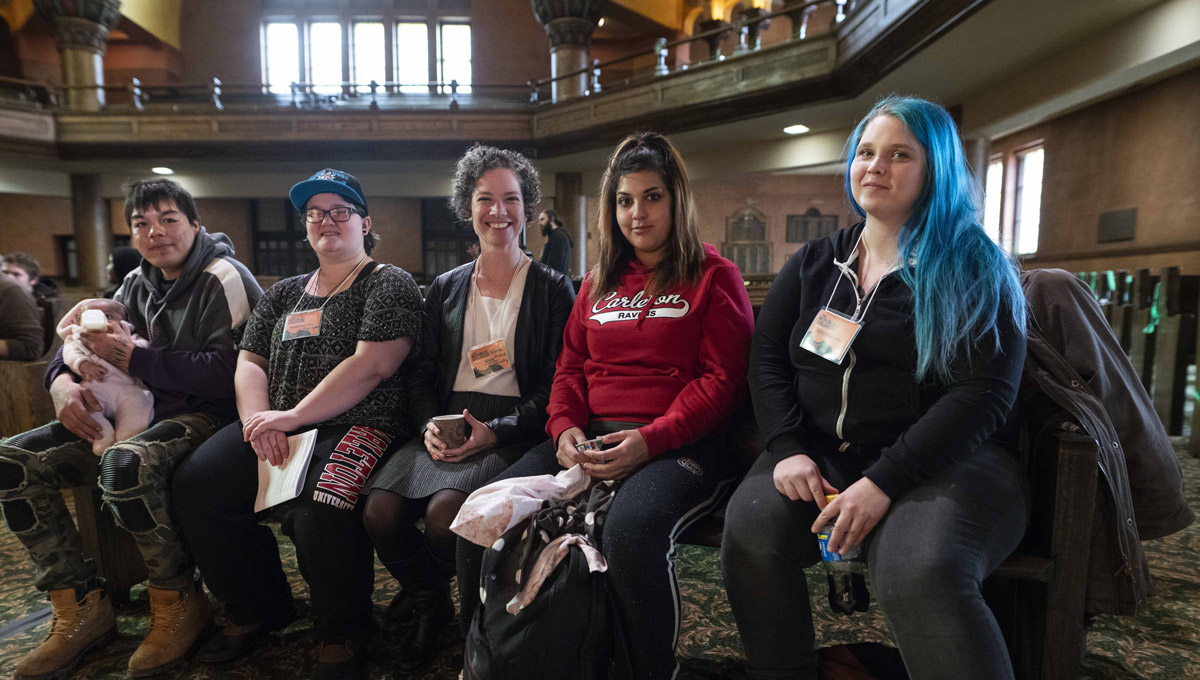
From left to right: Joseph Mathias, Rae Lynne, Prof. Jacqueline Kennelly, Blanca Leanño, and Holly Petersen
“There are massive misconceptions about youth homelessness,” says Kennelly.
“That people are just running away and can go back if they want to. That is very far from the reality. Projects like this one shed light on the realities of youth homelessness. How young people come to be in this situation — how terrible it is and what a horrible cost it is to them and to society.
“Having their voices heard and sharing those stories is an important part of that. It’s not the only piece — it has to happen in collaboration with those of us who have positions of privilege, but it is an important part.”
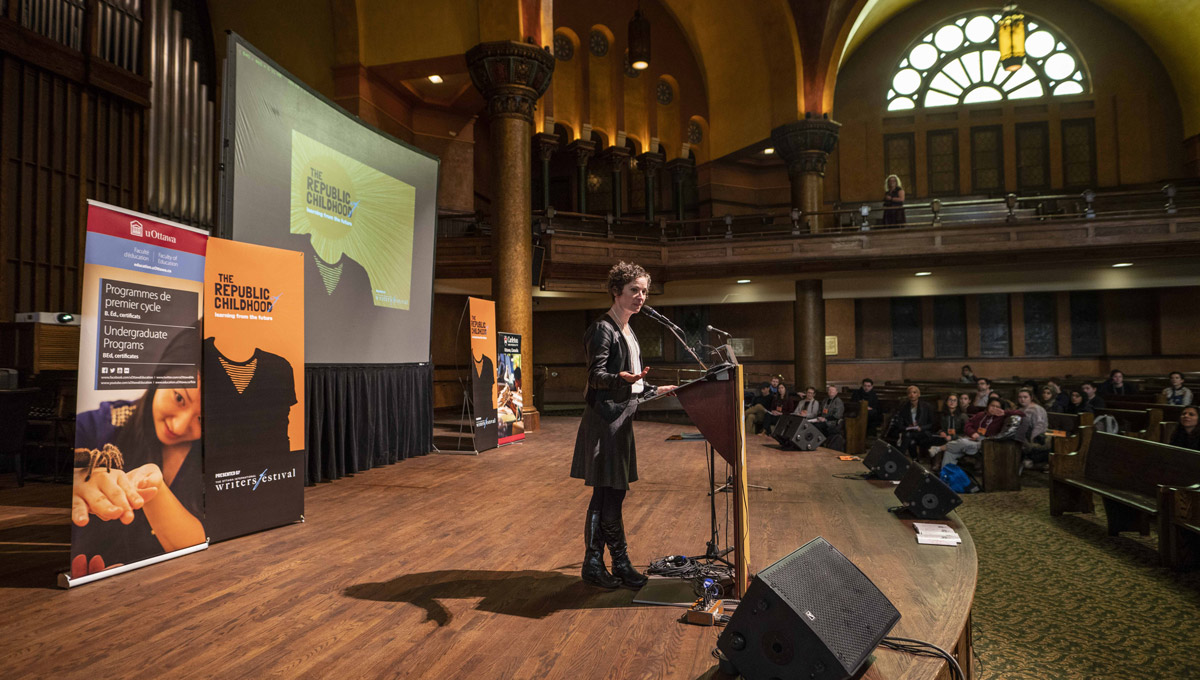
Wednesday, November 27, 2019 in Community, Faculty of Arts and Social Sciences
Share: Twitter, Facebook
